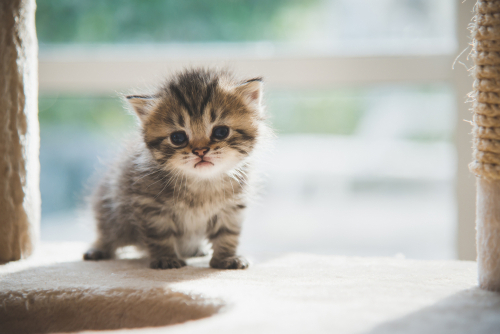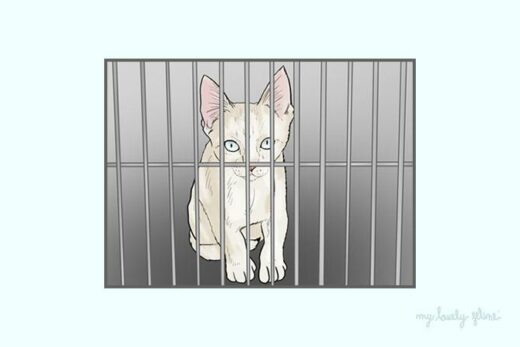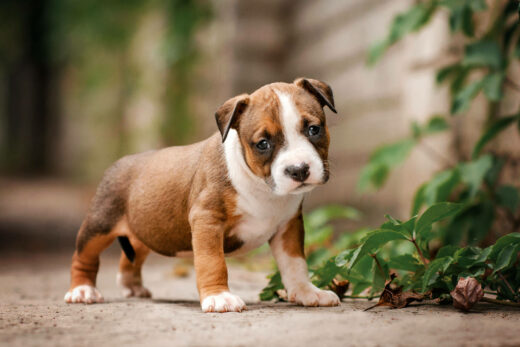From kittenhood to adulthood, cats can be hilarious goofballs.
While their playful and quirky nature makes them wonderful and entertaining companions, for observant pet owners, it can also add a shroud of uncertainty over whether a specific behavior is just a cat thing or an underlying health or behavioral concern.
For instance, you may wonder why does my kitten suck on blankets?
In the vast majority of cases, a kitten nursing on a blanket is a completely normal habit. However, there are some instances—especially in older felines—where it could indicate a deeper issue.
But before you decide whether to dissuade your cat or just let them be, let’s review the more common reasons for kittens nursing on blankets.
Why Is My Kitten Nursing On a Blanket? Is It a Problem?
Practically every breed of cat will exhibit nursing or suckling behaviors, especially early on in life.
They may find a blanket, an article of clothing, or even a finger and then go to town, sucking contentedly. And that behavior may also be accompanied by exuberant purring and kneading.
Generally speaking, there’s nothing inherently wrong with a cat suckling on household items. In most instances, the only thing you should be alarmed about is the potential ravaging (and soaking) of a prized sweater, blanket, or bedsheet. And that statement is especially true if you’re dealing with a suckling kitten.
Having said that, there are some cases where this behavior should be cause for alarm, particularly for mature felines.
Below are the five most common reasons for a kitten sucking on a blanket.
#1 Natural Instinct
Nursing is a natural instinct that doesn’t need to be taught—it’s an innate survival mechanism developed in their pre-domestication days that’s still going strong.
Like a human baby, kittens pop out of the womb hungry and on the prowl for a teat to suckle. If one’s not readily available, they’ll search for a replacement, such as a:
- Finger
- Blanket
- Bottle
- Clothing item
- Fuzzy toy
While this evolutionary purpose is to ensure that they quench their first, over time, it also bonds them to their mother. Both babies and kittens comfort-nurse for safety, warmth, and sleep.
Put simply, it’s a self-soothing mechanism, like toddlers sucking their thumb.
And that natural drive can stay with them even as they mature. Though, with time, the reliance on suckling random objects should subside.
#2 The Kitten Was Weaned Too Early
Along these lines, one of the most common reasons a kitten may exhibit habitual suckling is that they were, unfortunately, prematurely separated from their mother.
Most experts recommend that a kitten shouldn’t begin weaning until three to four weeks old. And that process will usually take several weeks before the kitten is comfortable drinking from a bowl.
Furthermore, kittens shouldn’t be separated until they’re ready. Typically, the earliest a kitten should be separated from the queen (mother cat) is at 8 weeks. But even this can be too early.1
If a kitten is orphaned, taken from its mom too soon, or bottle-fed from birth, it could cause psychological and behavioral scars that stay with the cat into adulthood. In response, a kitten kneading and sucking a blanket may be its subconscious way of reminding itself of its mother and litter.
Such a behavior is largely instinctual, but it could develop into a habit that lasts into adulthood.






